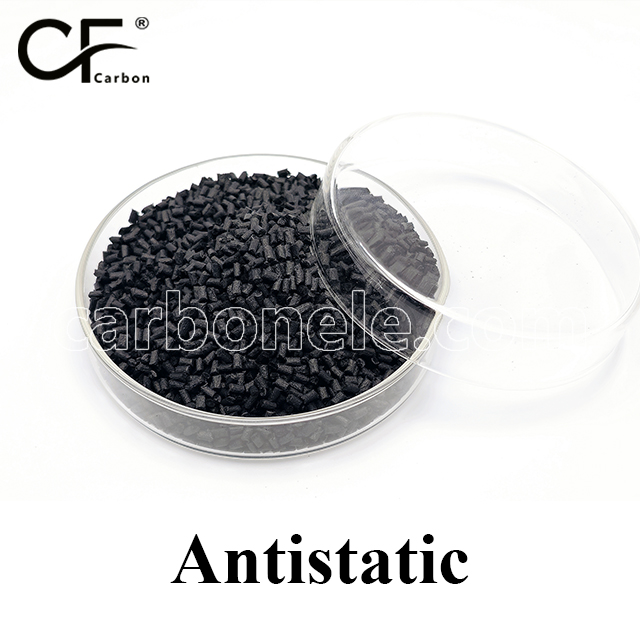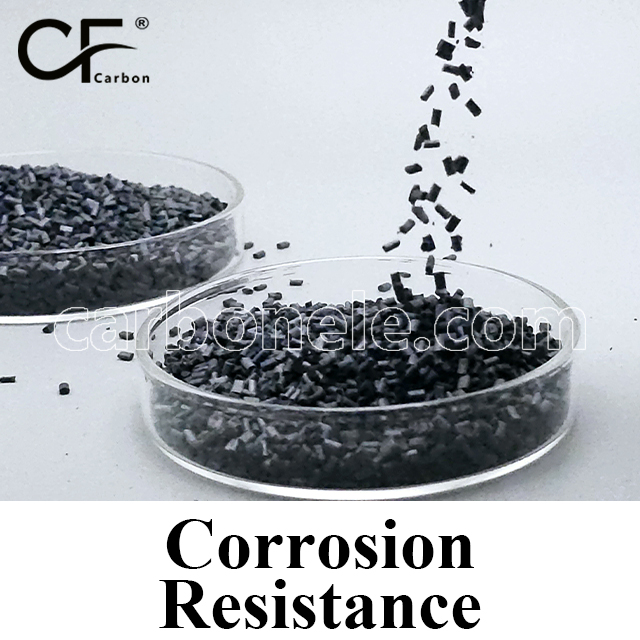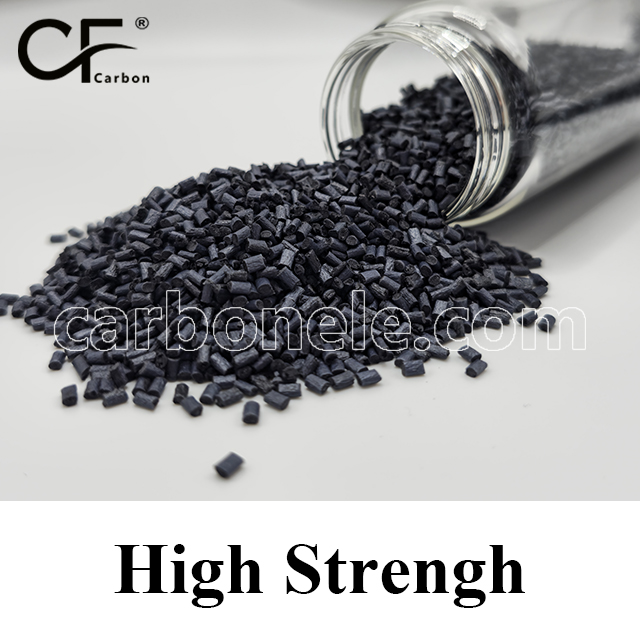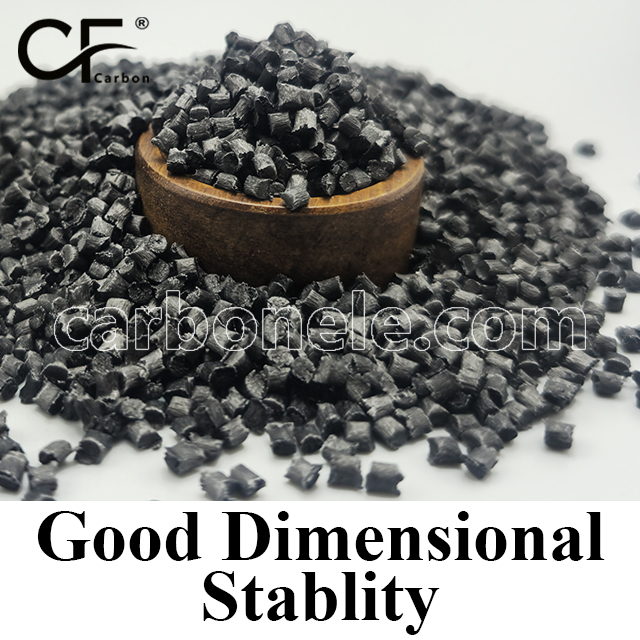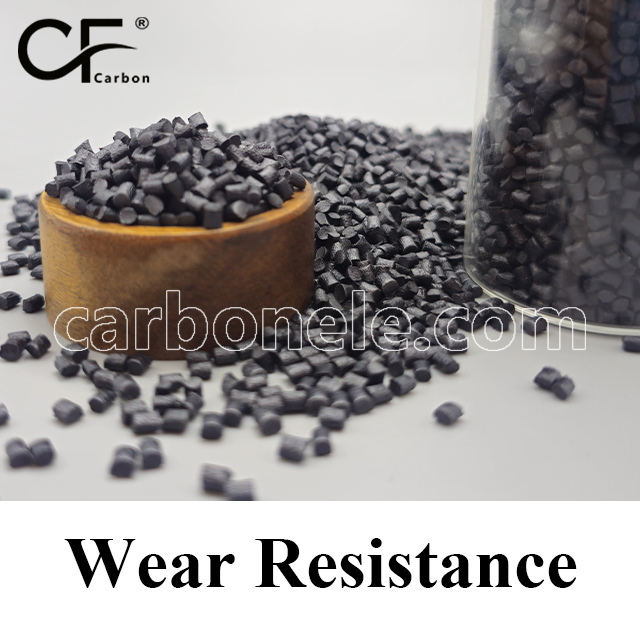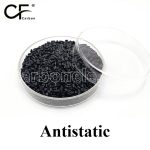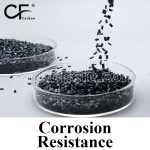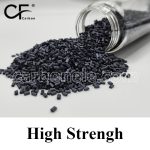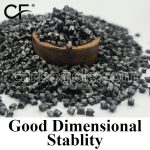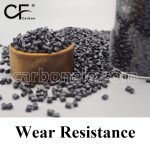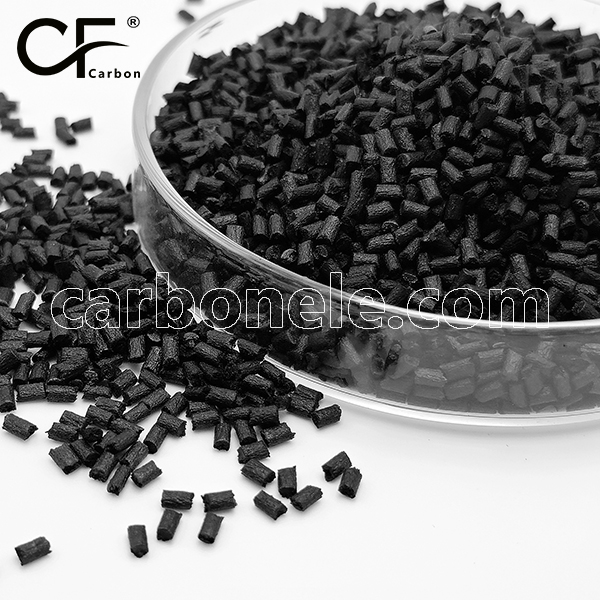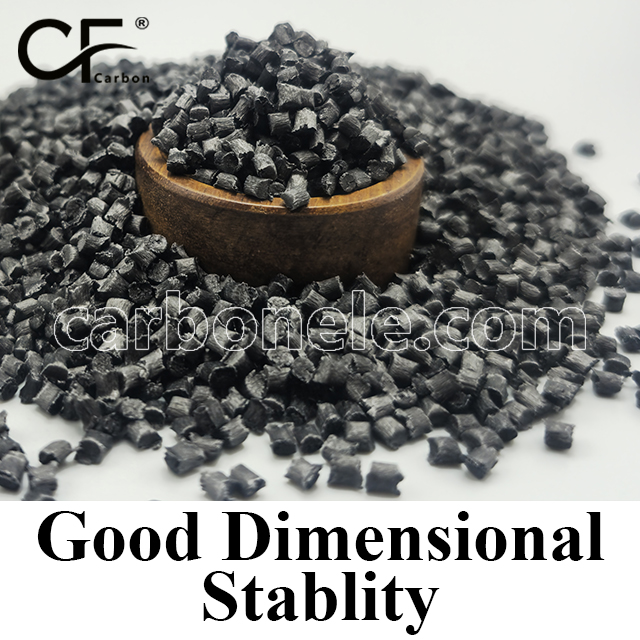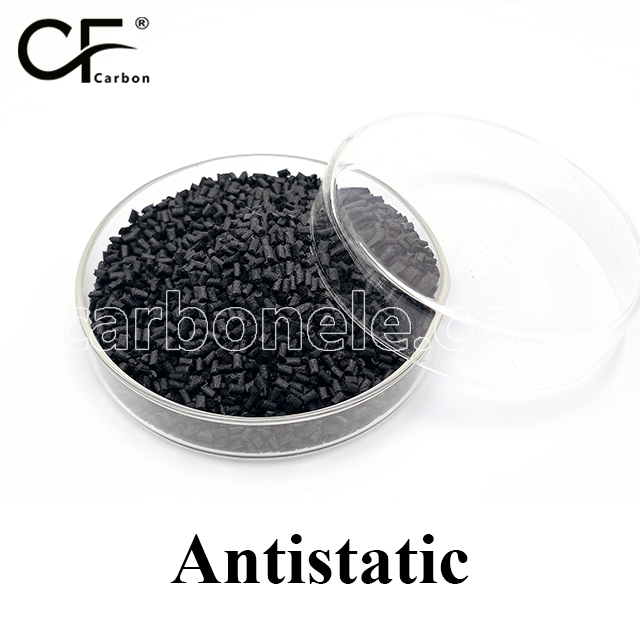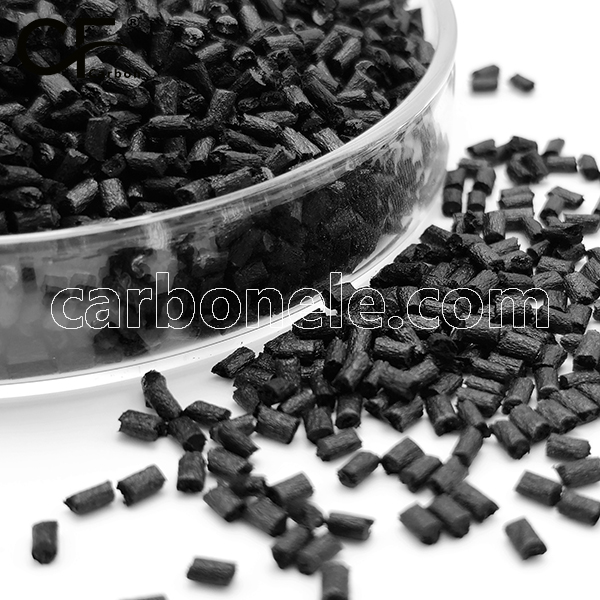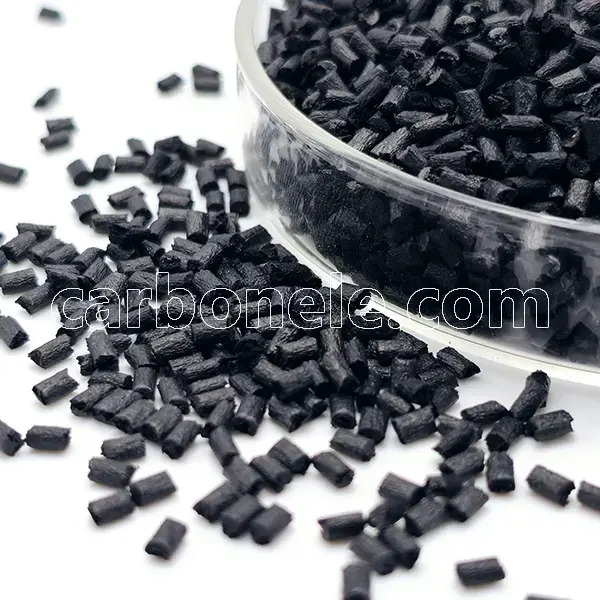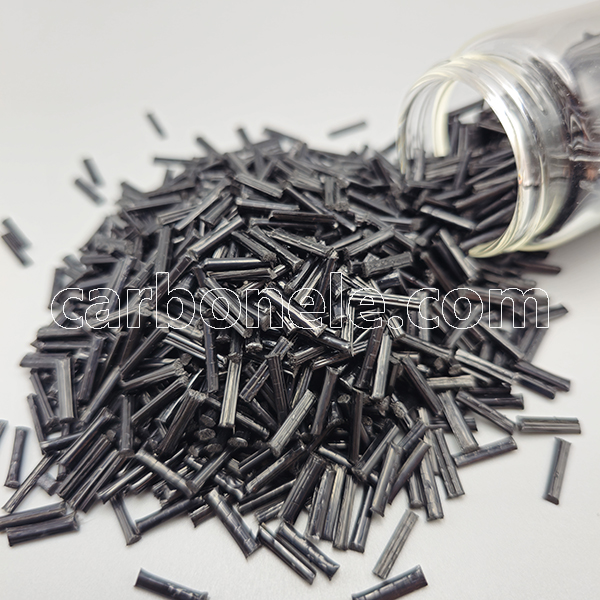PA66-CF40 is an ultra rigid polyamide 66 reinforced with 40% carbon fiber, delivering extreme mechanical strength, outstanding dimensional stability, and top tier thermal performance. Ideal for the most demanding structural applications, it enables lightweight metal replacement without sacrificing durability.

Impact-resistant PA66-CF40
- Model number: PA66-CF-BCA4
- Matrix Resin: Nylon6 6(Polyamide66) (PA66)
- Reinforcing Filler: Carbon fiber
- Appearance: Granules
- Grade: Injection/extrusion grade
- Packaging: 25kgs/bag
PA66-CF40: Extreme Strength Carbon Fiber Reinforced Polyamide 66
PA66-CF40 is an ultra high performance polyamide 66 (PA66) composite reinforced with 40% carbon fiber, engineered for extreme structural strength, maximum rigidity, and superior dimensional stability. This advanced material is tailored for the most demanding mechanical environments, where high load bearing capacity, fatigue resistance, and long term performance are critical. Despite its high filler content, PA66-CF40 remains processable via injection molding and extrusion with optimized setup.
Key Mechanical Properties
Tensile Strength: ≥ 150 MPa
Flexural Strength: ≥ 220 MPa
Notched Impact Strength: ≥ 12 kJ/m²
The 40% carbon fiber reinforcement offers peak mechanical reinforcement within PA66 based systems, enabling PA66-CF40 to serve as a metal replacement candidate in lightweight structural components under constant or dynamic load.
Thermal and Chemical Resistance
Heat Deflection Temperature (HDT): Approx. 150°C
Long Term Service Temperature: Up to 135°C
Chemical Resistance: Excellent resistance to oils, greases, fuels, and weak acids; moderate resistance to alkalis; not recommended for strong acids or oxidizers
Its enhanced thermal profile ensures stable performance in high temperature environments or near engine or motor housings.
Wear Resistance and Processing
Wear Resistance: Maximized over all other PA66-CF grades
Processing Methods: Injection molding, extrusion
Processing Notes: Requires hardened tooling and optimized mold designs to accommodate higher filler abrasiveness; screw and barrel wear protection is strongly advised
Environmental Adaptability
Water Absorption: Drastically lower than unreinforced PA66
Dimensional Stability: Exceptional in fluctuating thermal and humidity environments
The reduced moisture uptake helps maintain tolerances and precision even in challenging climates.
Typical Applications
PA66-CF40 is developed for heavy duty engineering applications where extreme strength, rigidity, and durability are essential. Common use cases include:
Automotive: Structural reinforcements, chassis mounted components, high load brackets
Industrial: Load bearing housings, machine tool bodies, high stress linkages
Aerospace: Lightweight structural elements with vibration and fatigue exposure
Mechanical: High performance gears, drive system components, bushing carriers
Sustainability and Design Flexibility
PA66-CF40 allows for strategic metal replacement, significantly reducing weight in structural systems without compromising integrity. Its high stiffness to weight ratio enables cost effective lightweighting and part consolidation, making it suitable for modern design optimization and sustainability goals in transportation and industrial sectors.
PA66-CF40 Performance Overview
| Property | Value/Description |
|---|---|
| Carbon Fiber Content | 40% |
| Tensile Strength | ≥ 150 MPa |
| Flexural Strength | ≥ 220 MPa |
| Notched Impact Strength | ≥ 12 kJ/m² |
| HDT | Approx. 150°C |
| Long Term Service Temp | Up to 135°C |
| Chemical Resistance | Excellent, except against strong acids/oxidizers |
| Water Absorption | Very low compared to standard PA66 |
| Processing Methods | Injection molding, extrusion |
| Wear Resistance | Peak performance among PA66 composites |
If you want to get more information about PA66-CF40, you can vist our Youtube.
Strength between PA66 and PA66-CF
Compared to unreinforced PA66, PA66-CF (carbon fiber reinforced) offers significantly higher strength and stiffness. The addition of carbon fiber increases tensile and flexural strength, enhances dimensional stability, and reduces deformation under load. While standard PA66 provides good toughness and impact resistance, PA66-CF materials are better suited for structural and high-stress applications where superior mechanical performance is required.

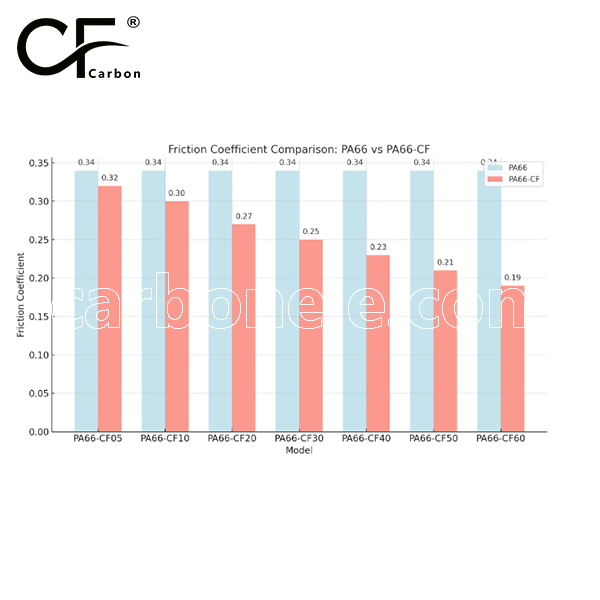

Frequently Asked Questions
Carbon (Xiamen) New Material Co., Ltd. aims to provide buyers with "one-stop" worry-free high-quality services. Here you can find all information about carbon fiber engineering plastics. If you still have questions, please send us an email for consultation!
-
How can I contact the manufacturer of a product that interests me?
When you find a product you are interested in, you can contact the manufacturer directly by sending an email and we will get back to you as soon as possible.
-
How do I find the products that interest me?
All you need to do is enter the keyword, product name in the search window and press the Enter key on your keyboard. Your search results page will then be displayed. You can also search within the product category pages on the home page. Each category is divided into subcategories, allowing you to refine your search and find products that interest you.
-
Where will I find a buying guide?
Please contact our after-sales service directly and we will provide you with a comprehensive operating guide.
-
What are CF Reinforced Thermoplastic Composites?
CF Reinforced Thermoplastic Composites are materials where carbon fibers are incorporated into a thermoplastic matrix. They combine the strength and stiffness of carbon fibers with the processability and recyclability of thermoplastics. For instance, they are used in automotive parts like bumper beams.
-
What are the benefits of CF Reinforced Thermoplastic Composites over traditional composites?
The key benefits include faster production cycles, easier recyclability, and better impact resistance. They also offer design flexibility. An example is in the manufacturing of consumer electronics casings where complex shapes can be achieved more easily.
-
How are CF Reinforced Thermoplastic Composites processed?
Common processing methods include injection molding, extrusion, and compression molding. Injection molding is widely used for mass production. For example, in the production of small components for the medical industry.
-
What industries use CF Reinforced Thermoplastic Composites?
They are utilized in aerospace, automotive, medical, and sports equipment industries. In aerospace, they can be found in interior components. In the medical field, they might be used in prosthetics.
-
How does the carbon fiber content affect the properties of the composites?
Higher carbon fiber content generally leads to increased strength and stiffness but may reduce ductility. A moderate content is often balanced for specific applications. For example, a higher content might be preferred in structural parts of a race car.
-
What are the challenges in using CF Reinforced Thermoplastic Composites?
Challenges include higher material costs, complex processing equipment requirements, and ensuring uniform fiber dispersion. Issues with adhesion between the fibers and the matrix can also arise. An example is in achieving consistent quality in large-scale production.








